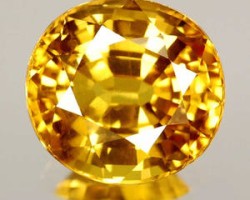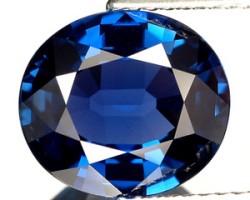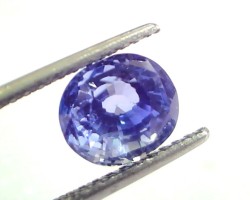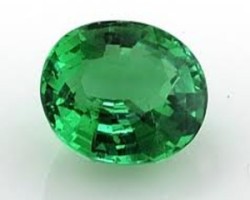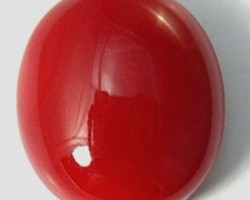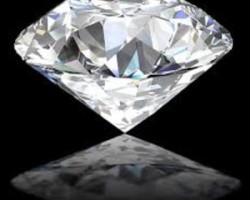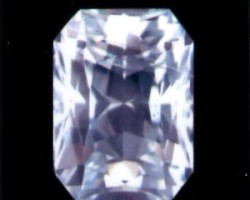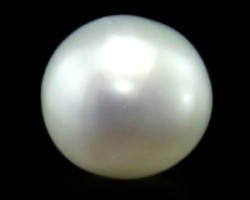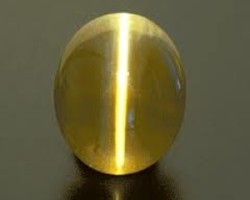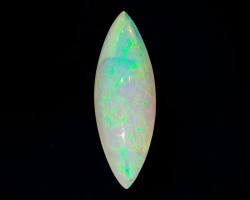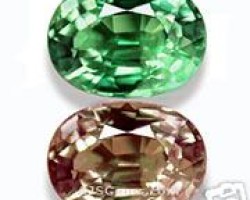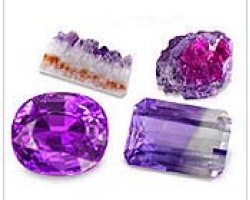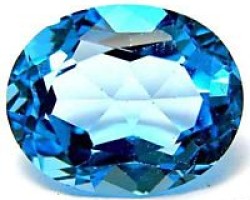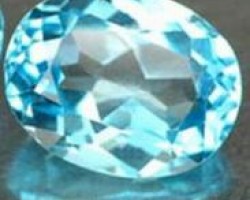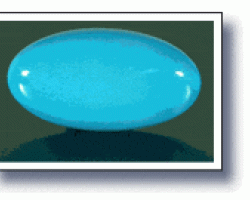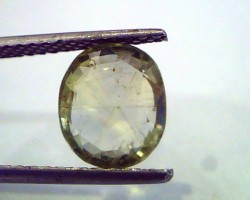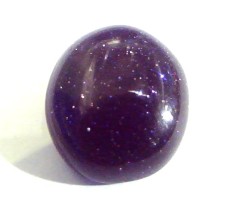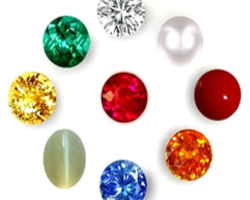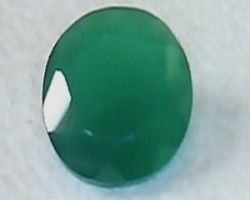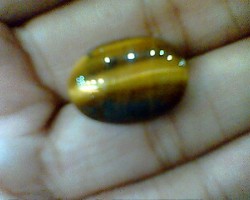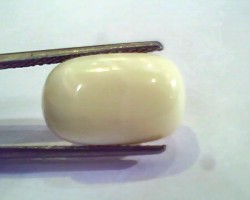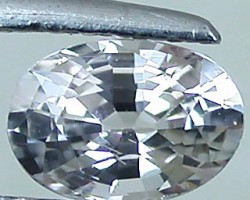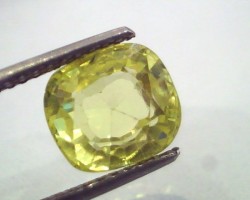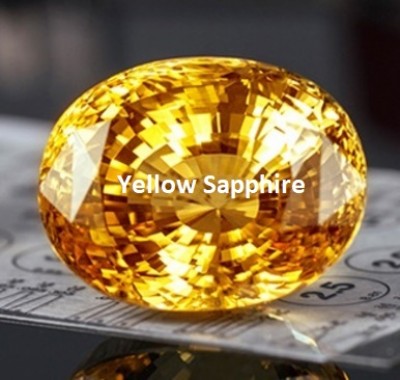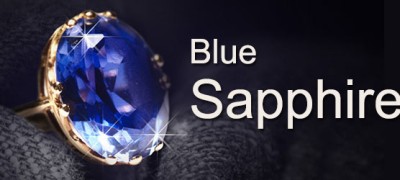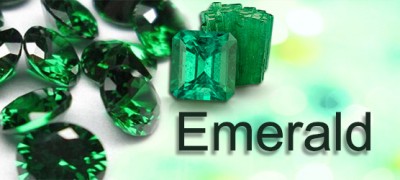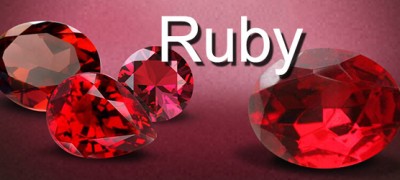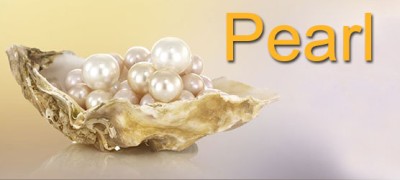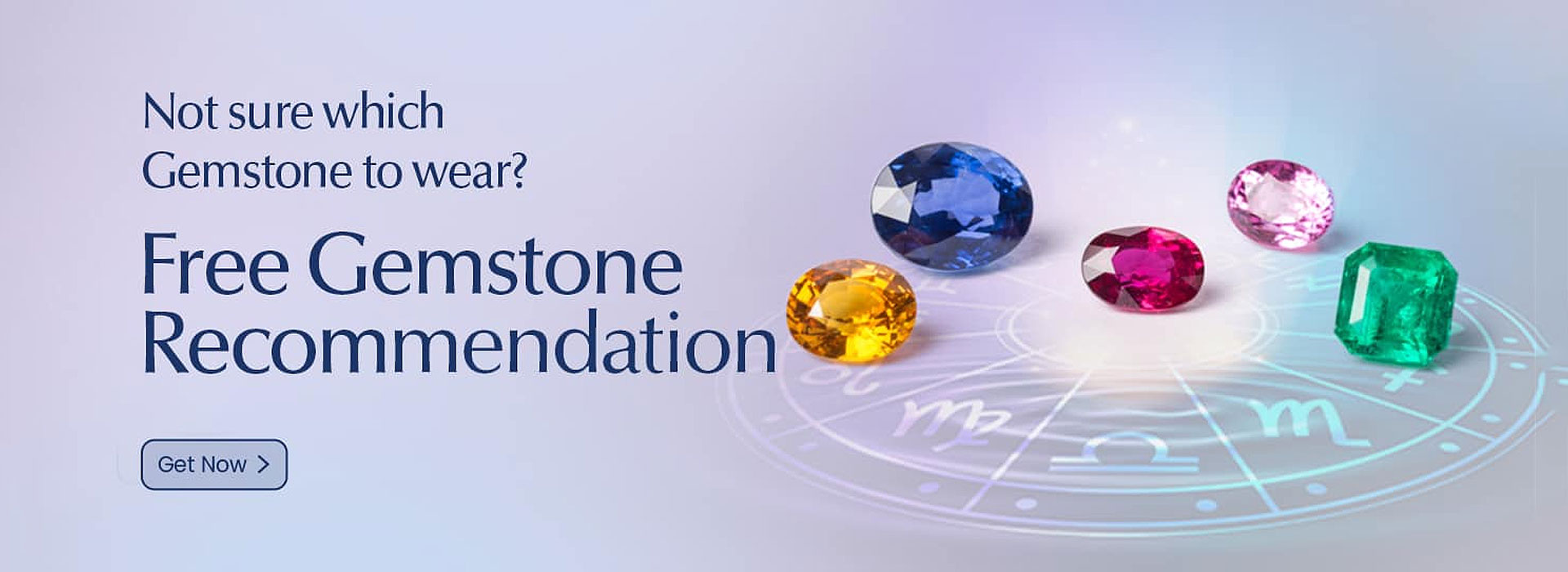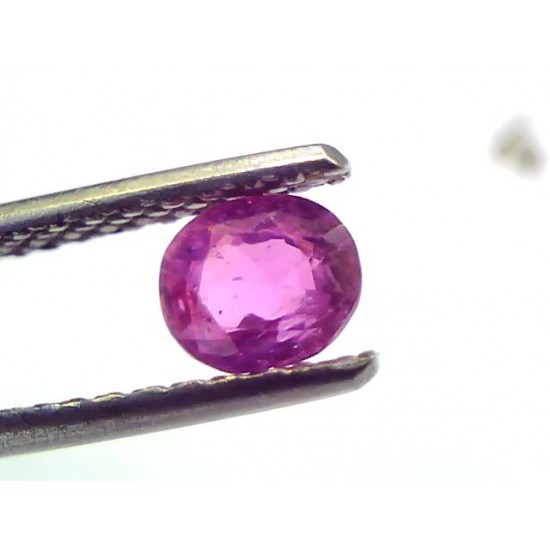
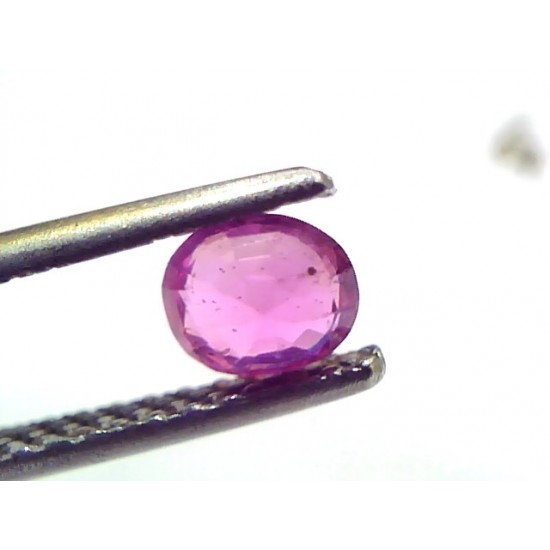
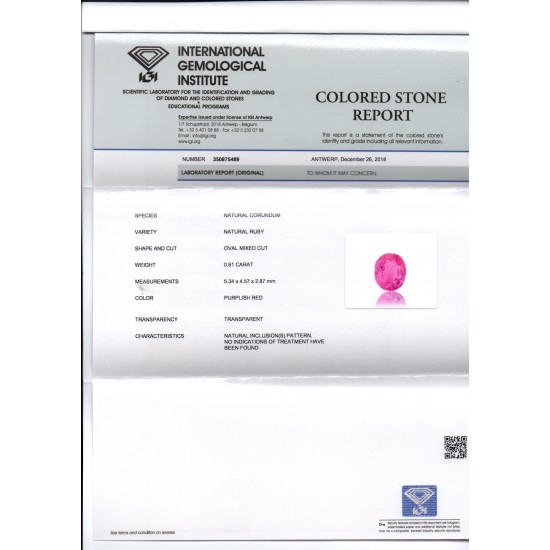



Product Description | |
Gemstone Name : | Natural Old Burma ruby |
Number of Pieces: | 1 Pc |
Weight: | 0.61 carat |
Gem Shape: | Oval mix |
Color: | purple red |
Clarity: | vvs-nearly eye clean |
Luster: | EXCELLENT |
ORIGIN: | Old Burma |
| Measurement: | 5.34/4.57/2.87 mm approx |
0.61 Ct IGI Certified Unheated Untreated Natural Old Burma Ruby AAA
- Stock: In Stock
- Model: ruby460
- Weight: 0.61Ct
₹75,000.00
Available Options
Rubies are a precious gemstone that have been treasured for their beauty and rarity for centuries. In addition to their aesthetic appeal, there are several benefits of rubies that have been recognized throughout history:1)Symbolism: Rubies have been associated with love, passion, and courage. In some cultures, rubies were believed to have protective powers, and were worn as amulets to ward off evil spirits.2)Healing Properties: Rubies are believed to have healing properties, particularly when it comes to the heart and blood circulation. They are also thought to boost energy levels and improve mental clarity.3)Investment: Rubies are a valuable and durable gemstone, making them a popular choice for investment purposes. The value of rubies tends to increase over time, making them a potentially lucrative investment.4)Aesthetic Appeal: Perhaps the most obvious benefit of rubies is their beauty. With their deep red color and sparkling facets, rubies are a stunning addition to any piece of jewelry.5)Durability: Rubies are one of the hardest gemstones, ranking at 9 on the Mohs hardness scale. This makes them an ideal choice for use in jewelry that will be worn frequently and subjected to everyday wear and tear.Overall, rubies are a valuable and treasured gemstone with a rich history and a range of benefits. Whether you're drawn to their symbolism, healing properties, or simply their beauty, rubies are a gemstone that can be appreciated for generations to come.
Rubies are durable gemstones that can last for generations with proper care and cleaning. Here are some tips for caring for and cleaning your ruby jewelry:Avoid harsh chemicals: Rubies can be damaged by exposure to chemicals like bleach, chlorine, and other cleaning agents. Remove your ruby jewelry before doing household chores or swimming in chlorinated water.Store carefully: Store your ruby jewelry in a soft pouch or box to prevent scratches or damage from other jewelry. Keep your ruby jewelry away from direct sunlight or heat, as this can cause fading or discoloration.Clean gently: Clean your ruby jewelry using warm, soapy water and a soft-bristled brush. Avoid using ultrasonic cleaners or steam cleaners, as these can damage the stone. Rinse the jewelry thoroughly with clean water and dry it with a soft cloth.Get regular checkups: Take your ruby jewelry to a professional jeweler for regular checkups and cleanings. They can inspect the setting and make sure everything is secure and in good condition.Be gentle: Finally, be gentle with your ruby jewelry. Avoid knocking it against hard surfaces or exposing it to extreme temperatures or pressure.By following these tips, you can keep your ruby jewelry looking beautiful for years to come.
Blue sapphire is a precious gemstone of the mineral corundum, and it is also known by several other names. Here are some of the different names of blue sapphire:Neelam: This is the most commonly used name for blue sapphire in Hindi.Sapphire: Blue sapphire is a type of sapphire, which is a precious gemstone composed of corundum.Indraneel: In Sanskrit, blue sapphire is called Indraneel, which means "Indra's blue".Shani ratna: In Vedic astrology, blue sapphire is associated with the planet Saturn, and it is often called "Shani ratna" or "Saturn's gemstone".Khooni neelam: This is a rare type of blue sapphire that has tiny red spots, which are said to resemble drops of blood. "Khooni" means "bloody" in Hindi.Vairam: In Tamil, blue sapphire is known as "vairam".Nila pukhraj: In Bengali, blue sapphire is sometimes referred to as "nila pukhraj", which means "blue yellow sapphire".Inderjaalmani: In Punjabi, blue sapphire is sometimes called "Inderjaalmani", which means "Indra's net gemstone".
The prices of rubies can vary depending on a variety of factors, including the size, quality, and origin of the gemstone. Generally, rubies from Burma (Myanmar) command the highest prices due to their high quality and historical significance in the gem trade.As of my knowledge cutoff date of September 2021, here are some approximate price ranges for rubies:Small, low-quality rubies (less than 1 carat): $50-$200 per caratMedium-quality rubies (1-3 carats): $200-$1,000 per caratHigh-quality rubies (3-6 carats): $1,000-$5,000 per caratVery high-quality rubies (6 carats and up): $5,000-$50,000+ per caratIt's important to note that these are just rough estimates, and the actual price of a ruby will depend on a variety of factors. Additionally, prices may have changed since my knowledge cutoff date, so it's always a good idea to do your own research and consult with a reputable jeweler or gemologist.
The quality of rubies is determined by a combination of several factors, including color, clarity, cut, and carat weight. Generally speaking, the highest quality rubies are those that have a deep red color, free of any visible inclusions, are well-cut, and have a significant carat weight.Color is the most critical factor in determining the quality of a ruby. The finest rubies have a vivid, deep red color that is often referred to as "pigeon blood red." The color is due to the presence of chromium in the mineral, which gives the gem its red hue.Clarity is another essential factor in determining the quality of a ruby. High-quality rubies should be relatively free of visible inclusions or internal flaws, as these can detract from the gem's overall beauty and value.Cut is also important when it comes to rubies. A well-cut ruby will have good proportions, symmetry, and angles, which can maximize its brilliance and enhance its overall appearance.Carat weight is the measurement of a gemstone's weight and is an essential factor in determining its value. Larger rubies are generally more valuable than smaller ones, provided they have the other desirable characteristics of color, clarity, and cut.Overall, the quality of rubies can vary significantly depending on a variety of factors. However, rubies that exhibit the finest color, clarity, cut, and carat weight are the most highly valued and sought after.
Rubies are a variety of the mineral corundum, which is composed of aluminum oxide with traces of other elements. Here are some specifications of ruby:Chemical formula: Al2O3 with chromium (Cr) impurities
Hardness: 9 on the Mohs scale, making it one of the hardest gemstones
Density: 3.97 to 4.05 g/cm3
Refractive index: 1.76 to 1.78
Birefringence: 0.008 to 0.010
Specific gravity: 3.97 to 4.05
Crystal system: Trigonal, hexagonal prisms
Color: Red, ranging from pinkish-red to purplish-red, with the most valuable color being a vivid, pure red with a hint of blue
Clarity: Typically contains inclusions, with few or no inclusions being very rare and valuable
Cut: Can be cut into various shapes and styles, with the most common cuts being oval, cushion, and round
Carat weight: Can range from small gemstones to large, rare stones over 10 carats
Overall, rubies are prized for their rich, vibrant red color, excellent hardness, and durability. These specifications, along with other factors such as geographic origin and treatment, can have a significant impact on the value and desirability of a ruby.
Ruby is a variety of the mineral corundum (aluminum oxide) that gets its characteristic red color from the presence of chromium. It is one of the most highly valued gemstones in the world, prized for its beauty, rarity, and durability.Rubies are typically classified based on their geographic origin, with the most valuable rubies coming from specific regions such as Myanmar (formerly known as Burma), Thailand, and Mozambique.Myanmar has historically been the most significant source of high-quality rubies, producing some of the most sought-after stones with the characteristic "pigeon blood" red color. Thai rubies are also highly regarded for their intense red color and excellent clarity. Rubies from Mozambique are a relatively new source and are known for their deep red color and relatively large sizes.In addition to geographic origin, rubies can also be classified by their type. The two primary types of rubies are "natural" and "treated." Natural rubies are those that have not undergone any artificial treatments to enhance their color or clarity, while treated rubies have been subjected to various treatments such as heat, radiation, or diffusion to improve their appearance.Overall, the type and origin of a ruby can have a significant impact on its value and desirability. While natural rubies from specific regions such as Myanmar and Thailand are highly prized, treated rubies can also be valuable if the treatment has been done correctly and does not significantly detract from the stone's overall beauty.
Rubies are a precious gemstone that can be worn by anyone who appreciates their beauty and symbolic meaning. Here are some instances when rubies may be particularly appropriate:1)July Birthstone: Rubies are the birthstone for the month of July, so individuals born in this month may enjoy wearing rubies as a way to celebrate their birth month.2)Zodiac Sign: Rubies are associated with the zodiac sign of Leo, which falls between July 23 and August 22. Individuals born under this sign may be drawn to rubies as a way to reflect their personality traits of strength, courage, and passion.3)Anniversaries: Rubies are often associated with the 40th wedding anniversary, so couples celebrating this milestone may choose to exchange ruby jewelry as a way to commemorate their love and commitment.4)Special Occasions: Rubies are a stunning addition to formal wear, making them an ideal choice for weddings, proms, and other special events.5)Anyone Who Appreciates Beauty: Ultimately, rubies can be worn by anyone who appreciates their beauty and symbolic meaning. Whether you're drawn to their deep red color, their association with love and passion, or simply their durability and investment potential, rubies are a gemstone that can be enjoyed by all.

